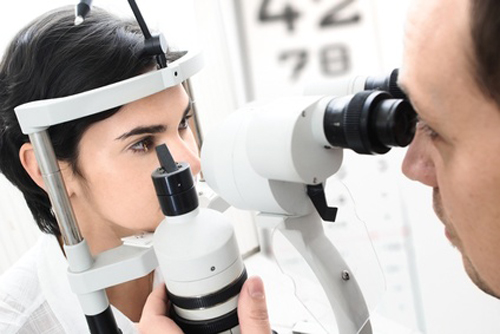The eye’s surface cornea is usually transparent, but infections or trauma can cause the cornea to become opaque, leading to sight loss or even complete blindness. Existing treatments for eye infections are based on the use of antibiotics and corticosteroids, but patients are frequently left with corneal hazing, and may need to undergo a corneal transplant. Scientists at the University of Birmingham, U.K., have now developed a novel fluid gel eye drop formulation that allows sustained topical delivery of the natural anti-scarring agent decorin directly to the corneal surface, to reduce scarring and promote healing without surgery.
Tests in mice showed that treatment using the decorin eye drop formulation reduced corneal opacity within 16 days, and restored corneal epithelial integrity. “This innovative fluid gel in the eye drop is designed to retain the decorin on the surface of the eye, and form a ‘therapeutic bandage’ that promotes scarless healing,” comments Ann Logan, Ph.D., from the University’s Institute of Inflammation and Ageing. “The fluid gel is a novel material that can transition between a solid and a liquid state,” adds Lian Grover, Ph.D., from the University’s School of Chemical Engineering. “This means it contours itself to the surface of the eye, is retained there, and is only slowly removed by blinking.” As the team states in its published paper in npj Regenerative Medicine, “Given that transplant availability and the facilities for surgical intervention are often not available in the developing world, we believe that this technology could, in the future, help to save the sight of many patients.” The researchers’ published paper, released today, is titled, “Sustained release of decorin to the surface of the eye enables scarless corneal regeneration.”
Corneal opacity is a key cause of sight problems worldwide, with an estimated 27.9 million people globally being affected in either one or both eyes, the researchers report. Opacity typically occurs when the otherwise optically clear corneal tissue structure is changed. Corneal scarring commonly results from ocular infections by bacteria, parasites, fungi, viruses, and protozoa. In the developed world corneal infections are often associated with prolonged contact lens use and/or poor hygiene, and are commonly caused by Pseudomonas aeruginosa. The current standard of clinical care for bacterial keratitis involves sterilizing the infected eye using eye drops of antibiotics, followed by topical corticosteroids to reduce inflammation. Pharmacological and other strategies can then be applied to try and help reduce scar formation and promote tissue remodeling. However, the researchers note, patients are often left with a high degree of corneal hazing and astigmatism, which can affect visual acuity, and in some cases, a corneal transplant may be needed.
Decorin is a naturally occurring leucine-rich extracellular matrix proteoglycan that is found in the cornea, and which regulates cellular proliferation, differentiation, and survival by modulating growth factors such as TGFbeta, and by directly impacting on the formation and spacing of collagen fibrils. “Mutations in decorin are associated with corneal opacities and visual abnormalities associated with congenital stromal dystrophy,” the authors state.


